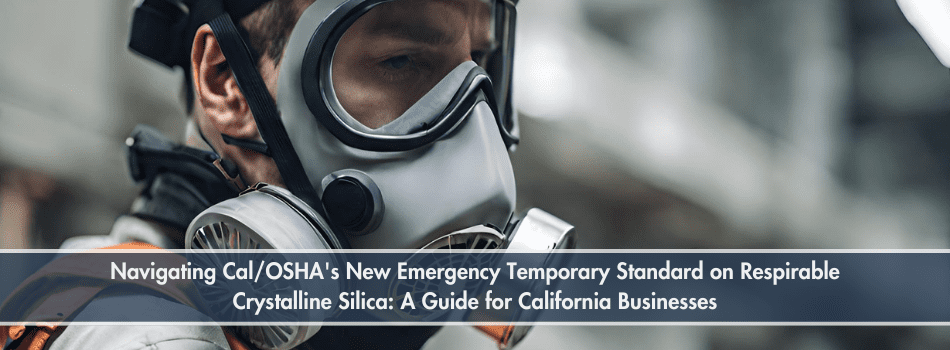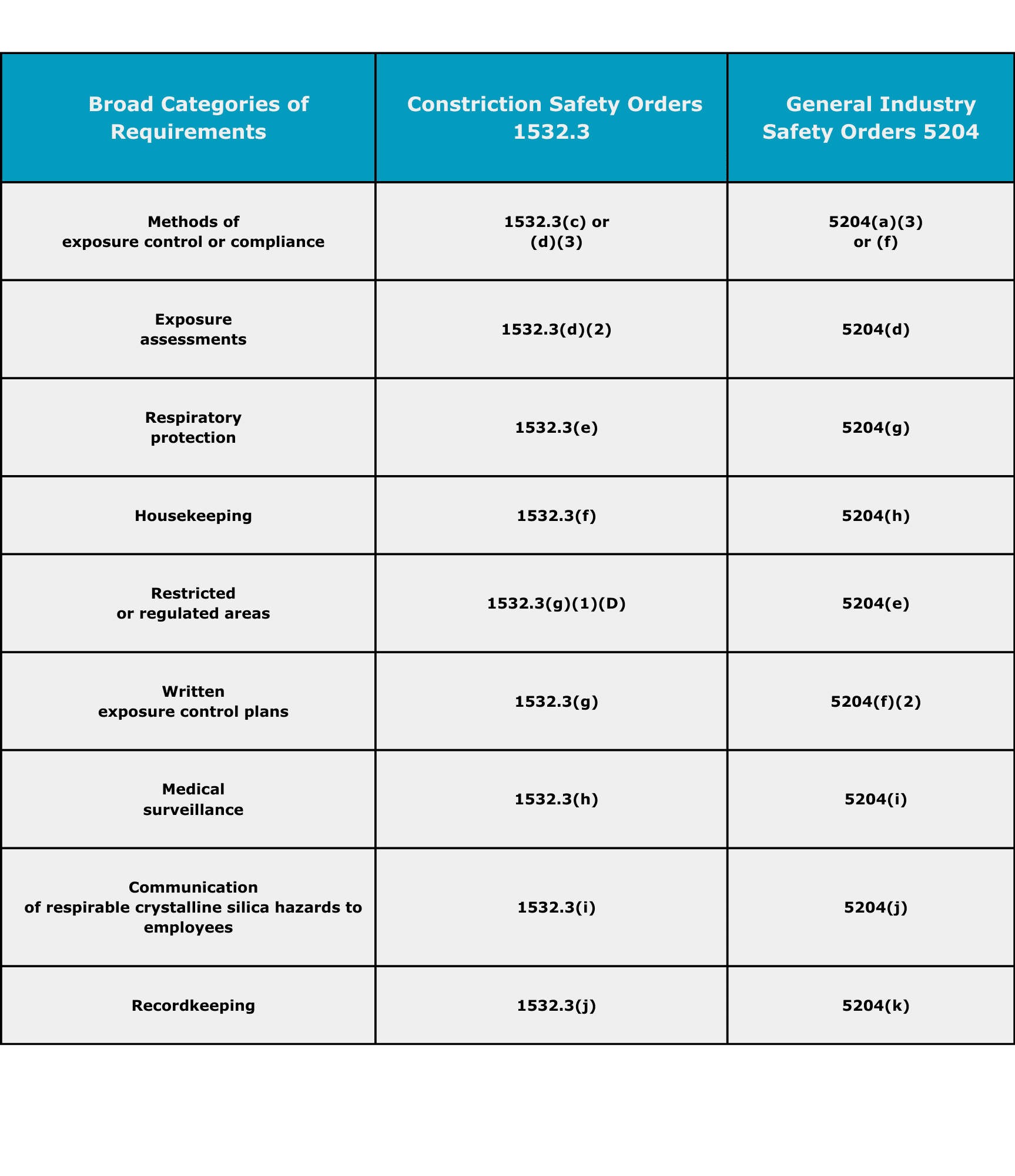
New Urgent Temporary Standard is Aimed at Safeguarding Workers Against Silicosis

On December 14, 2023, the Occupational Safety and Health Standards Board took a significant step in enhancing workplace safety by approving Cal/OSHA’s Emergency Temporary Standard (ETS) on Respirable Crystalline Silica (RCS). This ETS, effective from December 29, 2023, directly impacts employees working in the general industry under the California Code of Regulation, Title 8, section 5204. NES, as a trusted third-party Environmental Health & Safety auditor and training company, is here to guide businesses through the intricacies of this new regulation.
Understanding the Emergency Temporary Standard:
The ETS specifically targets workers involved in high-exposure trigger tasks such as cutting, grinding, polishing, and cleanup activities related to artificial stone and natural stone containing more than 10% crystalline silica. The regulation aims to protect these workers from the potential health hazards associated with RCS exposure.
Key Requirements for Compliance:
To comply with the new ETS, companies are required to establish a Respirable Crystalline Silica Exposure Control Plan. Two crucial sections outline the specifics for general industry (Title 8 Section 5204) and construction (Title 8 Section 1532.3). While Section 1532.3 applies to occupational exposures in construction, Section 5204 applies to all occupational exposures except construction work, agricultural operations, and exposures from the processing of sorptive clays.
Key Points from Section 5204:
- Methods of Exposure Control or Compliance: Employers must adhere to the methods specified in section 5204 to demonstrate that exposure will remain below the “action level” under any foreseeable conditions.
- Respiratory Protection: Compliance with section 5204(g) outlines the requirements for respiratory protection to safeguard employees.
- Housekeeping: Section 5204(h) addresses the importance of maintaining proper housekeeping practices to minimize RCS exposure.
- Written Exposure Control Plans: Employers must develop and implement written exposure control plans per section 5204(f)(2).
- Recordkeeping: Section 5204(k) outlines the recordkeeping obligations to ensure compliance with the ETS.
As we delve into the details of Cal/OSHA’s new Emergency Temporary Standard (ETS) on Respirable Crystalline Silica (RCS), businesses must stay informed and take proactive steps toward compliance. NES is committed to being your trusted partner in navigating these intricacies.

As a seasoned Environmental Health & Safety auditor and training company, NES stands ready to guide your business through the nuances of the ETS. Ensuring the safety and well-being of your workforce is our priority.
Take the next step towards compliance and workplace safety. Contact NES today to benefit from our expertise and tailored solutions. Together, let’s build a safer and healthier work environment for your employees. Your journey to RCS compliance starts here.
Request Information About New Silica Updates
Need information about the new silica updates in California? We can work with you to ensure your facility is compliant with new regulations, so you can keep your employees safe and protect your bottom line.
